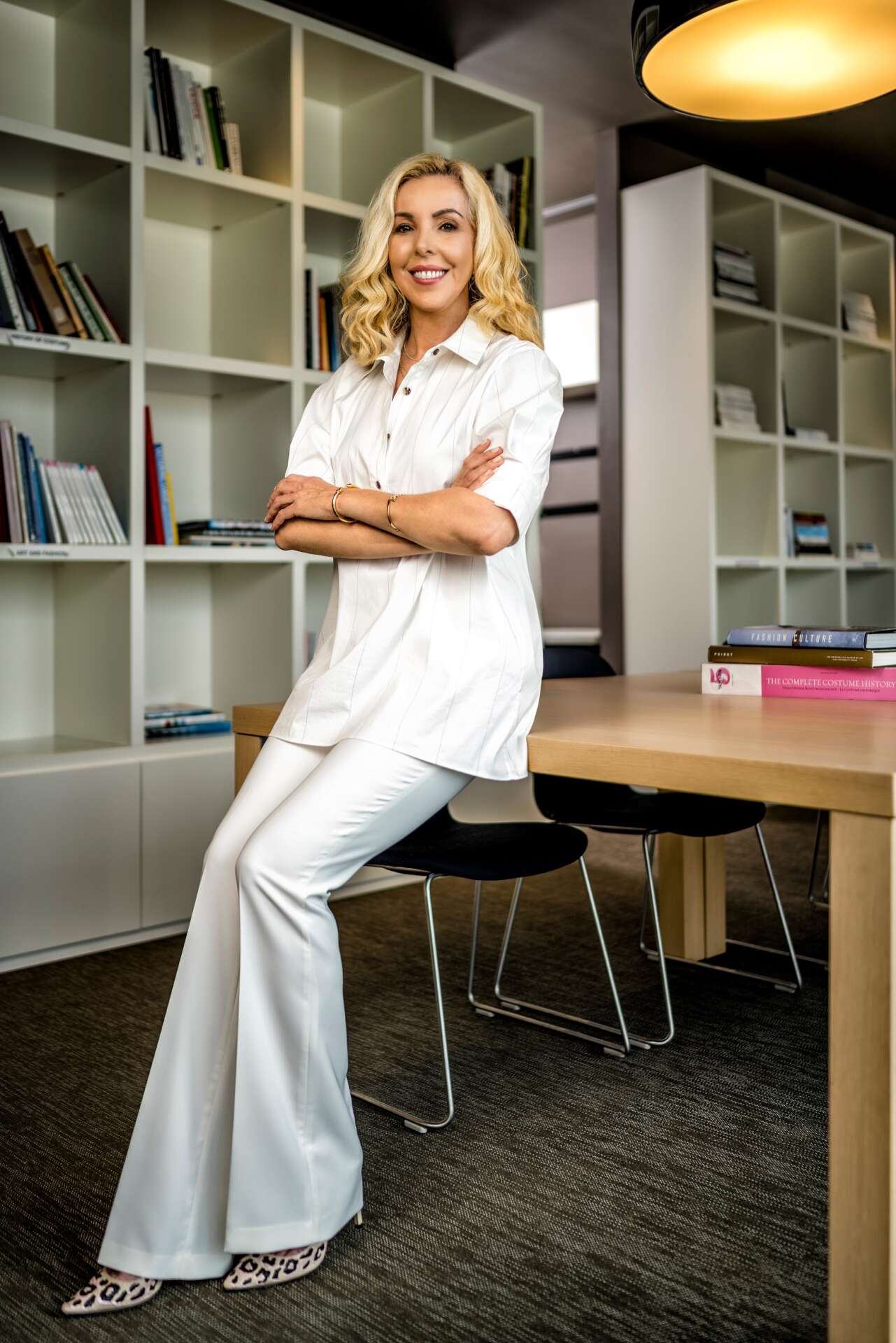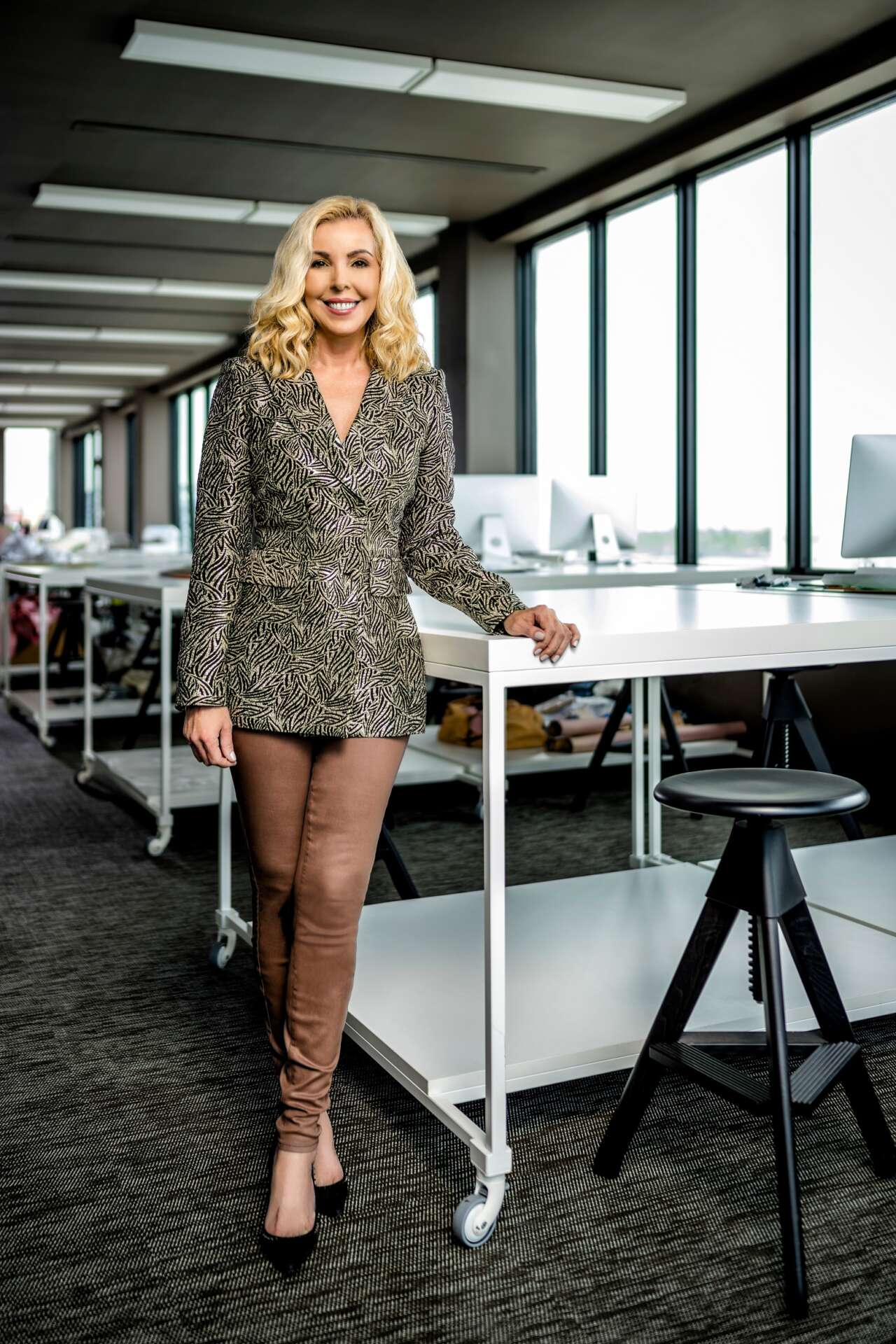We were lucky to catch up with Eva Hughes recently and have shared our conversation below.
Eva, looking forward to hearing all of your stories today. What do you think matters most in terms of achieving success?
Success is unique to each one of us. In my experience, it defines the moment you are living, where goals and a balanced life go hand in hand. In the process of achieving that state of being, we are going to take the wrong route, deviate from the path, doubt whether we should go to the right or to the left and we will make mistakes. There is no growth without learning or stumbling down. It makes us look in the mirror and determine what it is that we truly want. Knowing yourself, understanding your strengths and weaknesses will be the most successful thing you can achieve. It will provide insights and maturity. For me, it is helping others reach their potential and making a difference in what you are good at or interested in with curiosity, adaptability and empathy.




Awesome – so before we get into the rest of our questions, can you briefly introduce yourself to our readers?
As Founder and CEO of Adira Consulting, my mission is to advise brands looking to consolidate their business in established and emerging markets. A business expert with 20 years of professional experience, I have been recognized as the leading business leader in the fashion industry in Latin America. Currently, I lead an Executive Coaching Program (ECP) designed so that companies and executives in various industries reach their maximum potential by curating personalized advice through executive coaching and consulting services to organizations that seek to increase the performance and productivity of their teams, identifying opportunities of growth and the priorities for improving the skills of each person, as well as programs for people on personal branding. Honored to be Advisory Board Member for Istituto Marangoni Miami, where I co-founded the first Fashion Business Entrepreneurship and Leadership Executive Program in Spanish. Education is at the core of my projects and last year I created an online course for the platform On Post Courses on leadership and becoming the best version of oneself. Was CEO of Condé Nast Mexico and Latin America and Editor-in-Chief of Vogue Mexico and Latin America for over a decade. As an international public speaker, I tackle on issues like empowerment, career goals, entrepreneurship, resilience, reinvention, and leadership skills, participating in international events held in virtual format and broadcast to more than 25 countries around the world. I also serve as member of the boards of Sachamama and Latin American Fashion Summit and on my Podcast, Eva Talks, I interview the most influential personalities in the worlds of art, education, fashion, leadership and philanthropy.
Can you tell us about a time you’ve had to pivot?
Throughout my career it has been important to recognize when a pivot is needed and when it is best to stay the course. This has required for me to transform my mindset, make quick decisions, use leadership skills to navigate and embrace change, learn how to be flexible, follow my intuition, and face the risks.
I started my career as Editor-in-Chief of Selecta Magazine in Miami. During my five year tenure, nothing made me think that I was preparing for my next professional challenge that would represent the most pivotal moment in my career: Vogue Editor-in-Chief for Mexico and Latin America.
At Selecta we had a small team of 3 people and I wanted to prove myself and do the best job. Had not graduated from college or studied journalism and had no prior experience in publishing. Therefore, I dove in the role taking in the responsibilities of many roles: from filing the cabinets, to requesting press kits, styling shoots, doing interviews, writing and editing. At the time I could not foresee that learning every aspect hand on and in detail of a magazine would serve to my advantage in the future.
Then, when I took over Vogue, I really struggled with figuring out the best way to develop the team. I was so used to doing it all myself, that I didn’t realize that I had to unlearn a few of the “best practices” that had gotten me to the next level. I soon realized that as a manager, your teams’ success equates to yours. And not only that, but your ability to inspire and develop people is actually critical to your own future, as the higher you climb up the leadership ladder, the more you depend on the success and strengths of others.
It was quite a challenge, I had to learn to lead and negotiate with different personalities and cultures. And here I learned a key lesson in leadership: You have to respect those who have been doing things in a certain way for many years. You have to put your stamp and also your value, teach them and show them new ways of doing things, but above all listening and respecting the place they have earned. Ten years later, also in a new unexpected moment, I was named CEO of Condé Nast for Mexico and Latin America: the publishing house that owns Vogue, GQ, AD, Glamor and Vanity Fair where I had more than 30 direct reports and worked with multidisciplinary teams.
In the process, I understood that confidence and communication are the foundation of leadership. You can teach a leader to be an effective problem solver; become more decisive; and many other fundamentals of leadership. Yet, without that leader first believing in themselves, true leadership will exist only in title. In essence, this is the first sale to yourself. Meaning, that if you don’t believe that you have the personal confidence to lead, the task to lead becomes impossible. And trying to teach leadership without first building confidence is like a building a house on a weak foundation.
You might think that you are a good communicator, but people don’t trust or listen to those unsure of themselves. You might think that you empower others, but if you don’t have the internal strength to make decisions and commitments, then empowerment is an empty word. When you do not have self-confidence it is likely that the leader feels they cannot achieve their goals, an attitude that is destructive to effective leadership and success. Here are some techniques I have learned in the process:
• Hold back that inner voice of self-doubt. Instead of thinking, “I will fail” tell yourself, “I can do this, I just need to try.”
• When in doubt, concentrate on what you know and capabilities.
• Avoid negative thinking or thoughts like “I am not good enough.”
• Reconnect with your strong talents.
• Take pride in what you do well.
• Don’t compare to others.
• Remember that no one is perfect.
• Everyone makes mistakes.
• Surround yourself with people that believe in you.
• Avoid people that make you doubt yourself.
After 20 years of experience in the publishing world, I decided to discover my true potential as an entrepreneur, at the head of my firm, with my values and where my motivations, my goals and my talents are at the service of those who really needed them. So it was that I decided to launch Adira Consulting, to offer personalized Executive Coaching and work together with executives and brands, understanding their needs and objectives, as well as their key areas of opportunities and development.
In my Executive Coaching Program I am confronted on numerous occasions with entrepreneurs and executives that struggle with leadership skills, on how to communicate and establish a flow of communication between themselves and team members. Don’t try to have all the answers right and be ready to make mistakes. Like in nature, for something to exist it need an opposite. The same goes for success in anything in life. It cannot be enjoyed without failure. Realize that every situation in life has some purpose and you are thankful for it. Be grateful for the opportunity to learn and to become a better version of yourself. Appreciate everything you have and all that is to come. Enjoy every day and the ability you have to improve yourself.




Do you have any insights you can share related to maintaining high team morale?
An effective leader must have a clear vision and solid values so they can inspire their followers and motivate them. Values are essential, and they show that you are a credible leader. Profit is essential to every business, but it should not be the sole value that a leader works toward.
To be a great leader, you should recognize the skills you need and work to develop them. Identify your strengths and weaknesses and what your leadership strategy will be. You need to understand your own behaviors and attitudes, and how these affect your ability to lead. You must constantly work on your skills and always strive to improve them because they determine how successful your leadership style will be.
• Communicate expectations: Talk to each team member about their specific responsibilities, including key tasks and deadlines. Explain how often you plan to check in with them about their work and what you expect them to accomplish between meetings.
• Be transparent: Share information with your team to guide their progress and give them access to the same resources you use to make leadership decisions. Be honest and transparent about the team’s performance and the reasoning behind company decisions.
• Recognize success: Encourage your team’s independence by recognizing and celebrating excellence. Motivate your team by highlighting innovations and rewarding high quality, independent work.
• Share structured feedback: Schedule regular meetings where you give and receive feedback with your team. Setting up a structure for feedback prevents miscommunication and ensures that each team member gets the support they need to thrive.
Contact Info:
- Website: https://evahughes.com
- Instagram: https://instagram.com/evahughes31
- Facebook: https://www.linkedin.com/in/eva-hughes-790a5a3
- Linkedin: https://www.facebook.com/eva.hughes.921
- Twitter: @evahughes31
Image Credits
Credits if applicable are in the the name of file.


